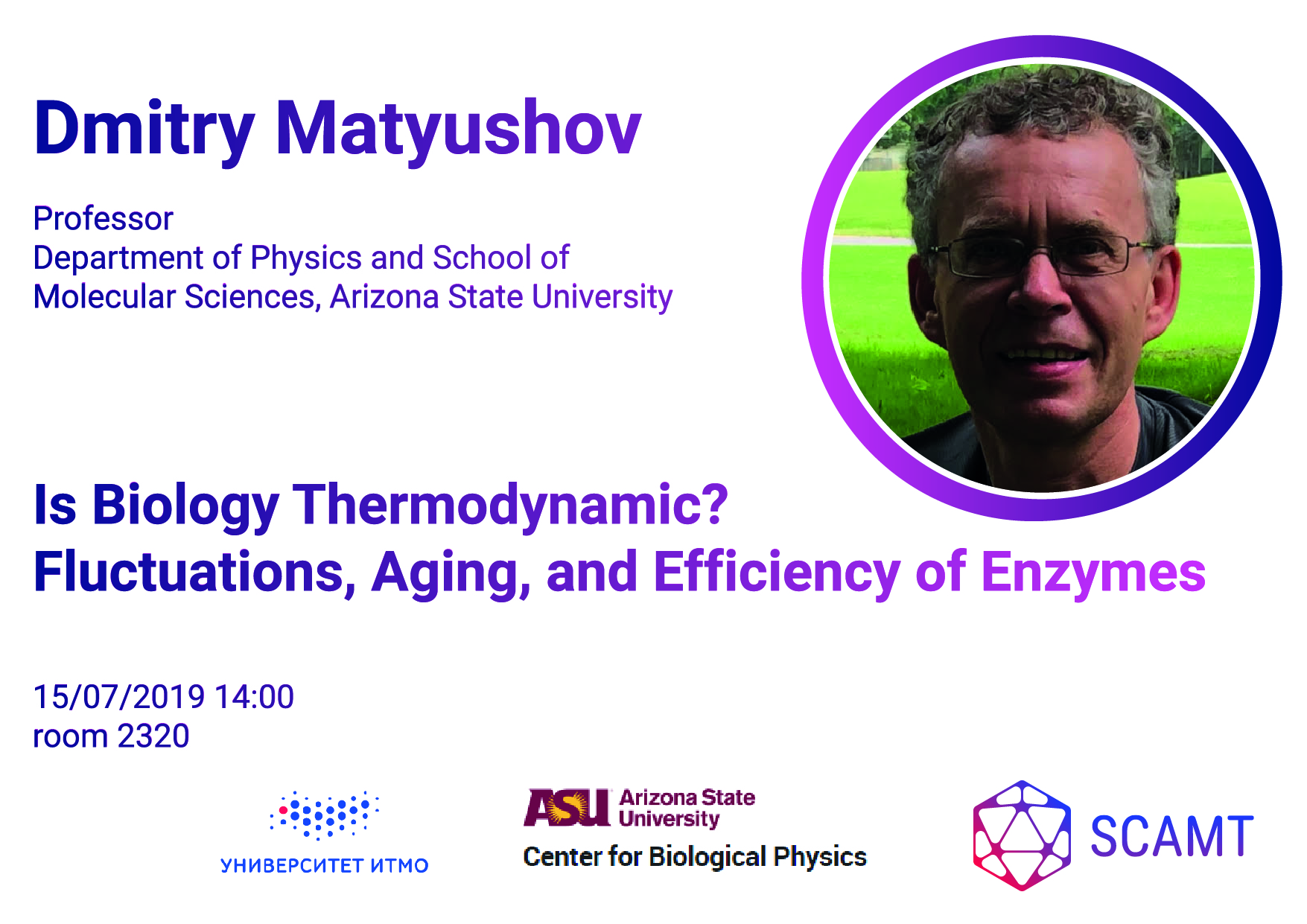15/07/2019 14:00 at SCAMT Dmitry Matyushov - professor of physics and chemistry at Arizona State University will give an open lecture. Pre-registration is required via link https://forms.gle/
The lecture will be read in English.
Bio: Dmitry Matyushov is a professor of physics and chemistry at Arizona State University. His research interests are in theoretical and computational condensed matter physics, physical chemistry, and biophysics. After receiving his undergraduate degree in 1986 from the Moscow Institute of Physics and Technology (Phystech), he studied at Kiev State University (Ukraine) and the Ukrainian Academy of Science, receiving his doctorate in theoretical physics in 1989 with the thesis on path integrals for stochastic processes. He worked as a staff scientist at the Ukrainian Academy of Sciences and in 1993 was awarded a postdoctoral (Lise Meitner) fellowship from the Austrian Science Foundation. After spending three years in Vienna, also in the position of an invited professor, he moved to Fort Collins (CO) to join the group of Professor Branka Ladanyi as a postdoctoral fellow. After another postdoc with Professor Greg Voth at the University of Utah, he joined the faculty of Arizona State University in 2000. His research at ASU has included spectroscopy, solvation, phase and glass transitions, complex fluids, electron transfer, dielectric spectroscopy, and bioenergetics (mechanisms of photosynthesis and respiration). Current interests include protein dynamics, electrostatics of the protein-water interface, and problems related to ergodicity breaking and non equilibrium ensembles in biology and enzyme catalysis.
Lecture «Is Biology Thermodynamic? Fluctuations, Aging, and Efficiency of Enzymes»
Abstract: Simple physical mechanisms are behind the flow of energy in all forms of life. Energy comes to living systems through electrons occupying high-energy states, either from food (respiratory chains) or light (photosynthesis). Life's ability to transfer electrons over large distances with nearly zero loss of free energy is puzzling and has not been accomplished so far in synthetic systems. I discuss the emerging understanding of how this energetic efficiency is realized. Ergodicity is often broken in protein-driven reactions and thermodynamic free energies become irrelevant. Breaking the grip of thermodynamics allows for an efficient optimization between the rates of individual electron-transfer steps and the spectrum of relaxation times. Time, it appears, plays as significant role as the free energy in optimizing biology's performance
